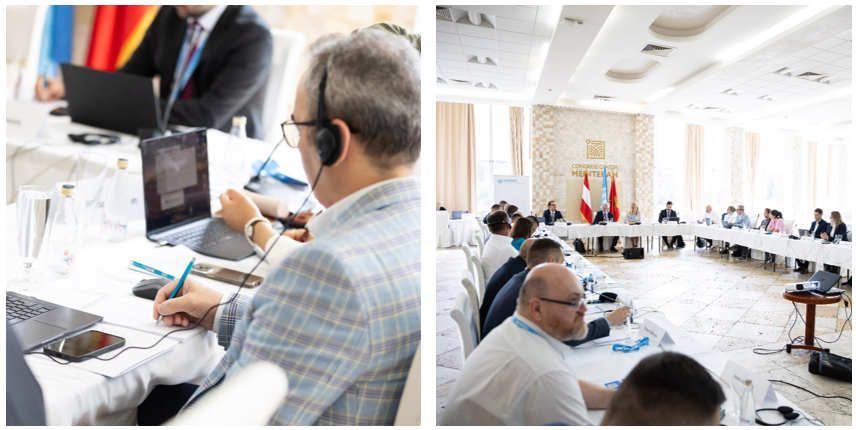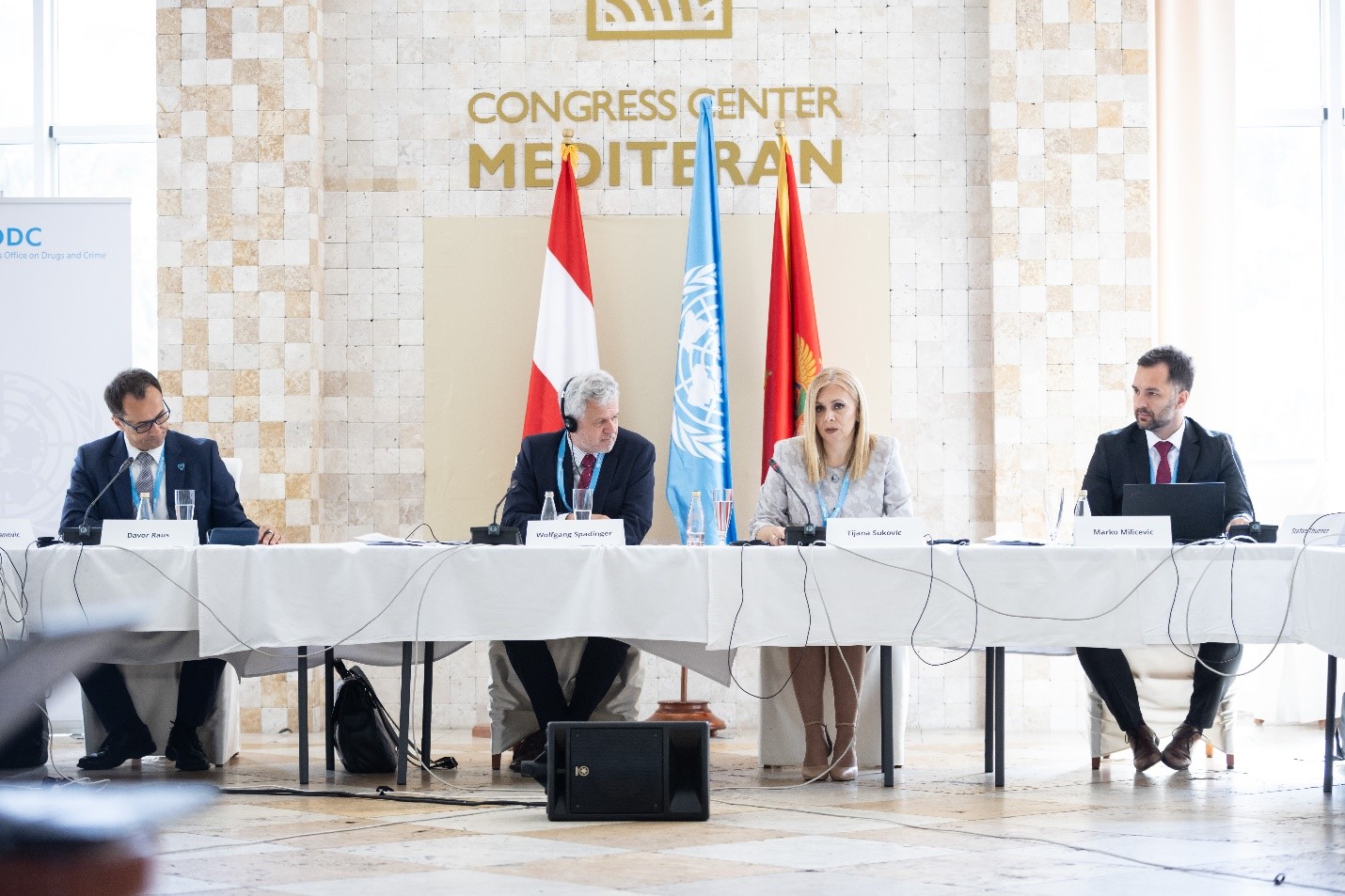UNODC initiative continuously targets evidence gaps in South Eastern Europe Anti-Trafficking Strategy
12 – 13 June 2024, Bečići, Montenegro: The significant part of the population of South Eastern Europe (SEE) states is facing difficult economic and social circumstances, such as poverty, unemployment, lack of sufficient education, inadequate social and health support, which place a significant number of the population in a vulnerable situation.
Criminal groups operating in the SEE and destination countries take advantage of these vulnerabilities, and also exploit the desire to migrate to more wealthy States of the European Union (EU), such as Austria.
The UNODC Global Report on Trafficking in Persons 2022 indicates cases of male victims of labour exploitation or forced labour coming from various countries in the SEE region, especially in the construction industry in EU countries (including Austria, Belgium, France, Germany, Italy, Luxembourg), Switzerland, Azerbaijan, the Russian Federation and the United Arab Emirates.
Along the same lines, considering a very complex environment in which trafficking in persons (TIP) takes place, where traffickers take advantage of all the possibilities of modern technology, the global environment and the easy availability of vulnerable individuals who are recruited for multiple forms of exploitation, a response through the partnership of all actors from the public sector, civil society, the business community, and international and intergovernmental organizations is necessary.
In response, United Nations Office on Drugs and Crime (UNODC) emphasizes the need for comprehensive ICT (Information and Communications Technology) and financial investigations involving in-depth analysis and examination of both digital and financial systems to uncover trafficking activities.

Teaming up with Police Cooperation Convention for Southeast Europe (PCC SEE) Secretariat and the Austrian Ministry for European and International Affairs, UNODC continuously brings together LEAs, CSOs, private sector and other relevant actors to eradicate cyber-enabled human trafficking in SEE.
Along with practitioners from PCC SEE Contracting Parties: Albania, Austria, Bosnia and Herzegovina, Bulgaria, Croatia, Hungary, Moldova, Montenegro, North Macedonia, Romania, Serbia, and Slovenia, Regional Workshop “Addressing the use of modern technologies for enabling trafficking in persons and challenges of use of digital evidence in investigation of trafficking in persons in the South Eastern Europe” united specialists from Joint Operational Office (JOO) Austria, Interpol, Europol, and WB3C (Western Balkans Cyber Capacity Centre) who presented the examples of a transnational cooperation on TIP, highlighting the operational challenges and outcomes, along with the Police Attaché Office at the Austrian Embassy in Belgrade. The representative from Western Union, responsible for cooperation with law enforcement, also provided valuable insights, as well as representatives of regionally present businesses and NGOs dealing with the protection and assistance of TIP victims.
With co-hosting support of the Ministry of Interior of Montenegro, UNODC Human Trafficking and Migrant Smuggling Section (HTMSS) organised the regional workshop on 12 – 13 June 2024 in Bečići, Montenegro, including specific topics specially designed for experienced investigators (management of investigations, evidence collection, cooperation and communication), the latest trends (detection and preservation of digital evidence, use of cryptocurrencies), and highlights and challenges of information exchange and international cooperation.
This activity contributes to SDG 16, particularly Target 16.2 to end abuse, exploitation, trafficking and all forms of violence against and torture of children.
